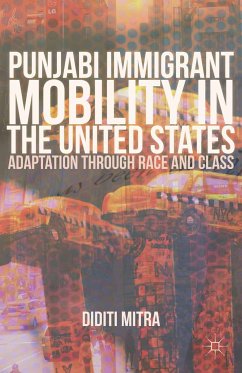Dieser Download kann aus rechtlichen Gründen nur mit Rechnungsadresse in A, B, BG, CY, CZ, D, DK, EW, E, FIN, F, GR, HR, H, IRL, I, LT, L, LR, M, NL, PL, P, R, S, SLO, SK ausgeliefert werden.
"Diditi Mitra provides nuanced insights on the role of race and class in the settlement process and experiences of Punjabi immigrants in the US, particularly of Punjabi taxi drivers in New York City. Woven through with engrossing narratives and thoughtful analysis, this volume makes an important contribution to the fields of migration studies, labor studies and Asian American studies." - Margaret Abraham, professor of Sociology, Hofstra University
"Taking the case of ever-visible yet under-studied Punjabi taxi drivers in New York City as her starting point, Diditi Mitra explores the ties between social class, race, and immigration. Her perspective is multidimensional and heuristically solid - I am particularly impressed by her attention to the dialectic between the socially constructed hierarchies these immigrant workers bring with them and the racialized cast to the narrative given by their new locale. Mitra's book will be of great interestto not only the students and scholars of race and social structure, but also to those of economics, demography, political science, and yes, even of New York City itself!" - Salman Akhtar, MD, professor of Psychiatry, Jefferson Medical College, Philadelphia, author of Immigration and Identity and Immigration and Acculturation









